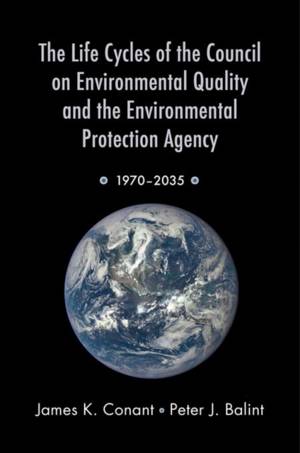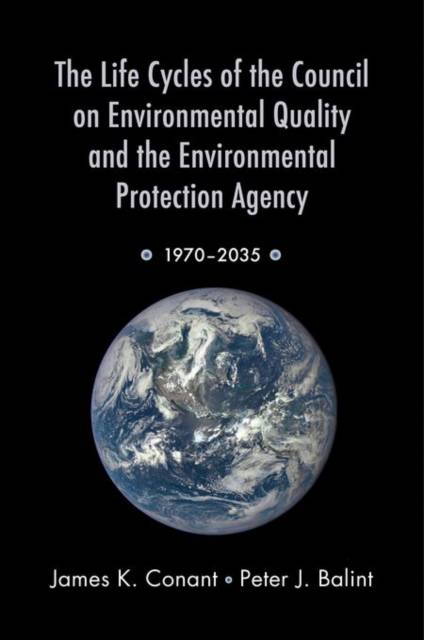
- Retrait gratuit dans votre magasin Club
- 7.000.000 titres dans notre catalogue
- Payer en toute sécurité
- Toujours un magasin près de chez vous
- Retrait gratuit dans votre magasin Club
- 7.000.000 titres dans notre catalogue
- Payer en toute sécurité
- Toujours un magasin près de chez vous
Life Cycles of the Council on Environmental Quality and the Environmental Protection Agency
1970 - 2035
James K Conant, Peter J Balint
Livre broché | Anglais
56,45 €
+ 112 points
Description
In 1970, due to increasing public concern about the environment, a dramatic series of bipartisan actions were taken to expand the national government's efforts to control pollutants. In that year, the Congress and President Nixon established two key federal agencies to address the nation's growing environmental problems: the Council on Environmental Quality (CEQ) and the Environmental Protection Agency (EPA). But despite this initial recognition of the pressing problems presented by environmental degradation, support for related policymaking and administration waxed and waned over the next thirty-five years, as other domestic and foreign policy problems rose to the top of the public and legislative agendas. What does the future hold for environmental policy in the United States, given the highly polarized politics surrounding the issue today? In this book, James K. Conant and Peter J. Balint examine what happened to the CEQ and EPA between 1970 and 2010 by using changes in leadership and budgetary resources as key indicators of the agencies' vitality and capacity for implementing pollution control laws. They also examine correlations between the agencies' fortunes and various social, political, and economic variables. The authors conclude with several scenarios about what the future holds for these important environmental agencies.
Spécifications
Parties prenantes
- Auteur(s) :
- Editeur:
Contenu
- Nombre de pages :
- 216
- Langue:
- Anglais
Caractéristiques
- EAN:
- 9780190203719
- Date de parution :
- 15-03-16
- Format:
- Livre broché
- Format numérique:
- Trade paperback (VS)
- Dimensions :
- 155 mm x 234 mm
- Poids :
- 317 g







